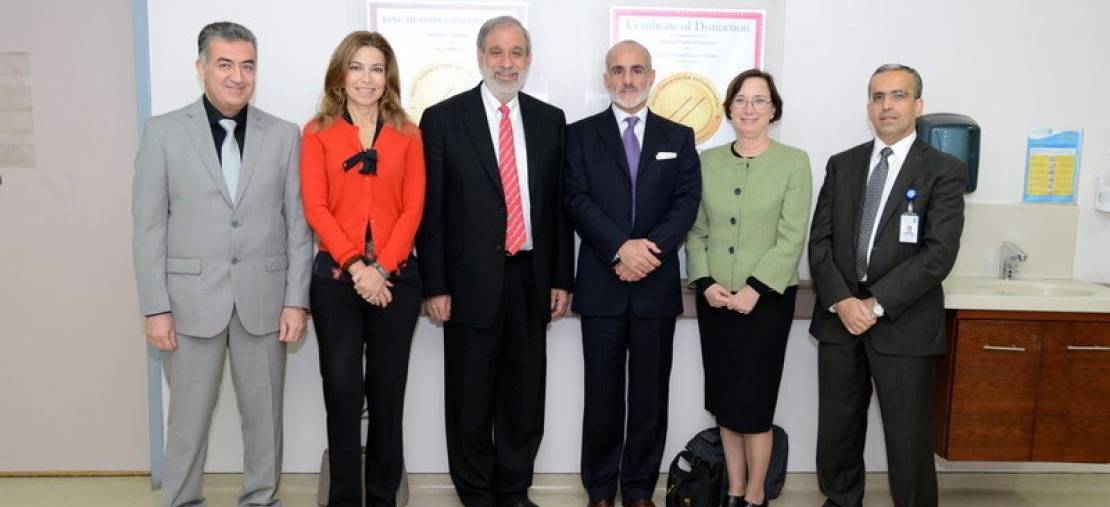Amman, November 2013 - World-renowned Lymphoma Oncologist, Professor Andrew Zelenetz, former Chief of Memorial Sloan Kettering Cancer Center’s (MSKCC) Lymphoma Service, visited the King Hussein Cancer Center (KHCC) to discuss ways of collaboration with the King Hussein Cancer Foundation (KHCF) and Center and to share his expertise with KHCC specialists. Dr. Zelenetz was received and welcomed by HRH Prince Talal Bin Muhammad, HRH Princess Ghida Talal, Chairperson of the Board of Trustees of KHCF, Dr. Asem Mansour, Director General of KHCC, and the heads of departments at KHCC.
Dr. Zelenetz gave a lecture on "Diffuse Large B Cell Lymphoma: Can we improve on R-CHOP?" to a large audience comprising KHCC oncologists and health care professionals.
HRH Prince Talal Bin Muhammad introduced Dr. Zelenetz and thanked him for his visit. He said: “Being a cancer patient is very difficult and takes a huge toll on the patient and his family; When Dr. Zelenetz treated me for non-Hodgkin’s lymphoma 21 years ago, he treated me not only with the most advanced medical means but also with the kindest human touch. I am immensely grateful to him and extremely proud that he is visiting Jordan’s medical jewel, the King Hussein Cancer Center, to share his invaluable expertise with our highly qualified doctors at KHCC”.
Dr. Zelenetz helped develop a number of agents - now approved to treat lymphoma - in addition to publishing more than 100 papers on lymphoma research in journals such as Blood, Journal of Clinical Oncology, and Clinical Cancer Research.
During his tour of KHCC, Dr. Asem Mansour briefed Dr. Zelenetz on the status of cancer care in Jordan including the treatment protocols being used at KHCC and the preventative measures being provided by KHCC to cancer patients in Jordan and the Arab world. Dr. Mansour also highlighted KHCF’s efforts in combating cancer nationally and internationally.
KHCC continuously seeks opportunities to meet and interact with leading doctors and surgeons around the world, to ensure that it remains at par with medical advancements. These visits provide a unique opportunity to exchange scientific expertise and knowledge and explore potential areas of collaboration.

